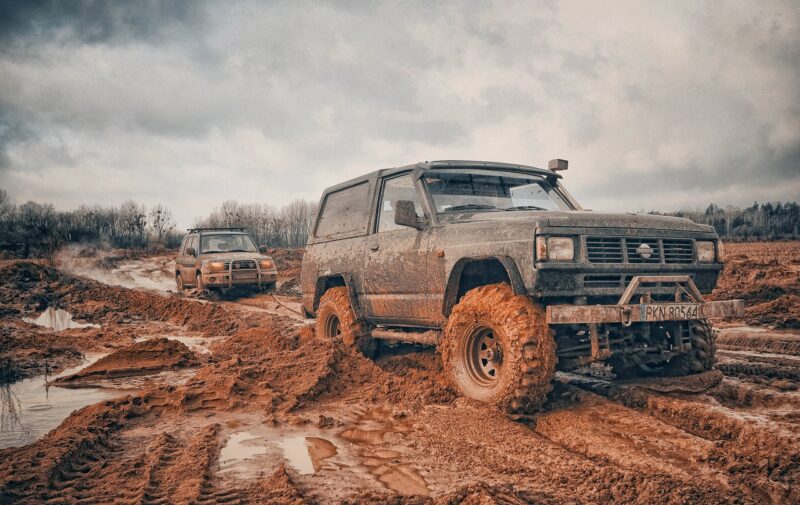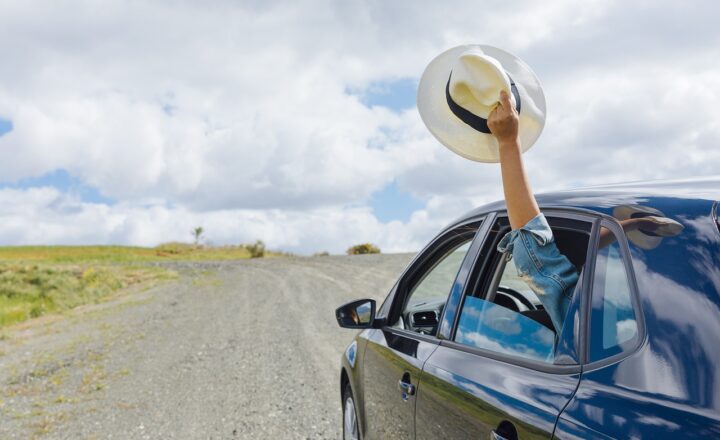How to Choose a Car for Outdoor Adventures: Durability, Space, and Off-Road Capabilities
November 13, 2024

When it comes to venturing into the great outdoors, having the right vehicle can transform your experience and make adventures more enjoyable. Whether you’re heading to the mountains for a camping trip, exploring a national park, or tackling rugged terrains, selecting a vehicle suitable for outdoor adventures requires thoughtful consideration. In this article, we’ll explore key factors to help you choose the ideal car for your adventures, focusing on durability, space, and off-road capabilities.
1. Assessing Your Outdoor Adventure Needs
Before diving into the specifics of vehicle features, it’s essential to assess your outdoor adventure needs. Think about the types of activities you’ll be doing. Will you be lugging around camping gear, kayaks, mountain bikes, or other equipment? Will you be traveling on paved roads or venturing into off-road territory? Asking yourself these questions will help pinpoint the attributes most important in your vehicle choice.
Some common types of vehicles suitable for outdoor adventures include:
- SUVs: These offer a higher ground clearance and often come equipped with four-wheel drive systems, making them ideal for off-road conditions.
- Trucks: A truck bed can carry and transport larger gear, with powerful engines that handle tough terrains effectively.
- Crossover Vehicles: These combine the features of SUVs with fuel efficiency, providing comfort on long journeys while still having decent off-road capabilities.
- Vans: If you travel with a larger group or family, consider a van that allows ample passenger and cargo space, making it a practical choice for family adventures.
Thinking about usage will help guide your decision-making process.
2. Importance of Durability
Outdoor adventures can be demanding, and durability is a significant factor to consider when choosing a vehicle. A durable vehicle is less likely to suffer from wear and tear and can handle the rigors of outdoor environments. Here are some key aspects of durability to consider:
- Build Quality: Look for vehicles with sturdy construction, often highlighted in reviews and specifications. Metallic frames and high-quality materials offer better resilience against rugged use.
- Weather Resistance: Ensure the car is equipped to handle various weather conditions. Look for features such as waterproof interiors, reliable drain plugs, and durable plastic elements that can withstand mud and rain.
- Brand Reliability: Research brands known for their reliability and customer satisfaction in off-road capabilities. Reading reviews from fellow outdoor enthusiasts can provide insights into which models perform best under challenging conditions.
Considering durability is essential to avoid costly repairs and breakdowns during your excursions.
3. Space for Gear and Passengers
Space is another crucial element when selecting a car for outdoor adventures. You want to ensure there’s enough room for your gear and your travel companions. Here’s what to keep in mind:
- Cargo Space: Consider the amount of trunk space available. If you carry larger equipment like canoes, bicycles, or camping gear, assess if the vehicle has sufficient capacity and if the back seats fold down for extra storage.
- Passenger Capacity: Factor in how many people you’ll often travel with. Opting for vehicles with additional seating can enhance group adventure experiences, allowing everyone to enjoy the trip together.
- Roof Racks and Storage Options: Look for vehicles that support roof racks, as they provide advantages for transporting long gear items, while internal storage compartments can help keep items organized during your travels.
Ensuring adequate space can make trips smoother and far more enjoyable.
4. Off-Road Capabilities:
If you plan to venture off the beaten path, off-road capabilities are vital for selecting your adventure vehicle. Certain features make vehicles ideally suited for traversing rough terrain:
- Four-Wheel Drive (4WD) vs. All-Wheel Drive (AWD): Four-wheel drive systems provide better power distribution to all wheels, making it suitable for rocky and uneven surfaces. All-Wheel Drive offers enhanced traction but is typically built for on-road use, making it less ideal for hardcore off-road adventures.
- Ground Clearance: Higher ground clearance allows your vehicle to navigate obstacles like rocks or tree roots. Check your prospective vehicle’s clearance rating to ensure it meets off-road standards.
- Suspension System: Quality suspension systems are crucial when traversing bumpy roads. Vehicles with adjustable or off-road specific suspension can absorb shocks better, improving ride comfort in rugged landscapes.
Both on-road comfort and off-road performance make for a balanced adventuring experience.
5. Fuel Efficiency and Maintenance Costs
While it’s easy to focus only on features, fuel efficiency plays a significant role in the overall cost of ownership, especially for outdoor enthusiasts planning long drives. A vehicle with a high fuel consumption can lead to budget constraints over time. When choosing:
- Research Fuel Economy Ratings: Investigate the manufacturer specifications for miles per gallon (MPG) ratings and compare different models for efficiency differences.
- Consider Maintenance and Repair Costs: Research the vehicle’s maintenance schedules and typical breakdown costs. Budgeting for these potential expenses can ensure you maintain your car without strain when it comes to upkeep.
- Hybrid Options: Explore hybrid or electric options that offer fuel savings without sacrificing performance for recreational outings while considering eco-friendly choices for the environment.
Balancing performance with efficiency keeps the joy of adventure without the additional burden of undue costs.
6. Safety Features for Peace of Mind
Safety should always be prioritized, especially when spending long hours traveling on various terrains. Here are essential safety features to look out for:
- All-Wheel Traction Control Systems: These systems distribute power to wheels based on traction, preventing spin-out scenarios in slippery conditions, enhancing overall control while off-road.
- Advanced Airbag Systems: Ensure your vehicle has ample airbags to protect all passengers in case of collision.
- Blind Spot Monitoring and Rear Cross-Traffic Alerts: These features improve visibility and awareness, especially in unpredictable outdoor settings where visibility may be compromised.
Opting for safety features will bring comfort no matter where your adventures take you.
Conclusion
Choosing the right car for outdoor adventures requires careful consideration of various factors such as durability, space, off-road capabilities, fuel efficiency, and safety features. By assessing your specific needs and defining the adventure goals, you can ensure that you select a vehicle that enhances your outdoor experiences, allows for memorable journeys, and provides the reliability required for the wild.
Whether it’s a rugged SUV, a versatile truck, or a spacious van, make an informed choice that matches your lifestyle and adventure aspirations, so your outdoor journeys become thrilling tales to tell. Happy exploring!






